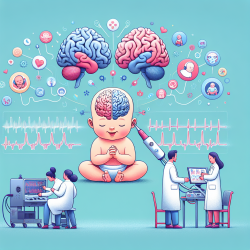Introduction
In the realm of youth psychotherapy, especially for those with disruptive behavior problems (DBPs), case management (CM) emerges as a crucial component. According to the research article titled Case Management as a Significant Component of Usual Care Psychotherapy for Youth with Disruptive Behavior Problems, CM is frequently used in usual care (UC) psychotherapy, and its implications for evidence-based practices (EBPs) are significant.
The Role of Case Management
Case management involves coordinating care with various service providers, including schools, psychiatrists, and community-based services. It is not just an administrative task but a therapeutic strategy that enhances the treatment outcomes for youth with DBPs. The study highlights that CM is not only prevalent but also a predictor of better therapeutic outcomes.
Why Practitioners Should Embrace Case Management
Practitioners should consider integrating CM into their therapeutic practices for several reasons:
- Holistic Care: CM ensures that all aspects of a child's life, including family, school, and community, are considered in treatment plans.
- Improved Outcomes: Research indicates that children with severe symptoms benefit significantly from CM, as it addresses multiple domains of their lives.
- Enhanced Coordination: By coordinating with other professionals, practitioners can create a cohesive treatment plan that is more likely to succeed.
Implementing Case Management: A Call to Action
For practitioners looking to enhance their skills and improve outcomes for their clients, embracing CM is a strategic move. Here are some steps to consider:
- Training: Seek training opportunities that focus on CM techniques and strategies.
- Collaboration: Build networks with other service providers to facilitate seamless coordination of care.
- Research: Stay informed about the latest research and evidence-based practices related to CM and DBPs.
Conclusion
The integration of case management into psychotherapy for youth with disruptive behavior problems is not just beneficial but essential. As practitioners, embracing CM can lead to more effective treatments and better outcomes for children. To delve deeper into the research and understand the full scope of CM's impact, practitioners are encouraged to read the original research paper here.










